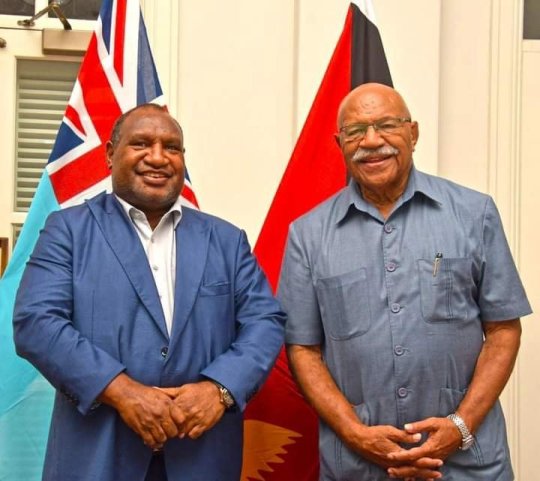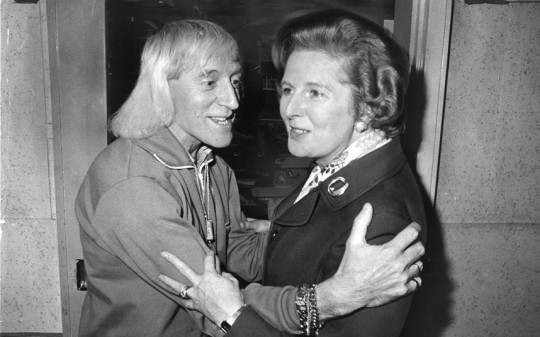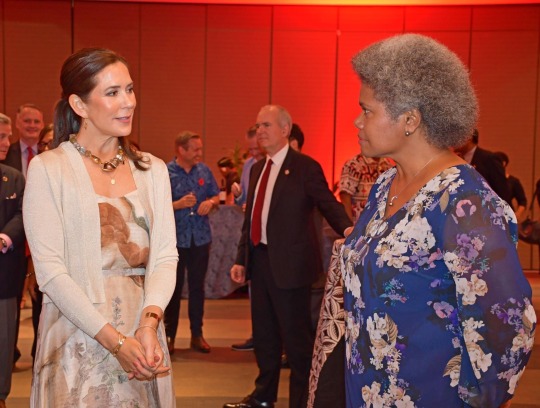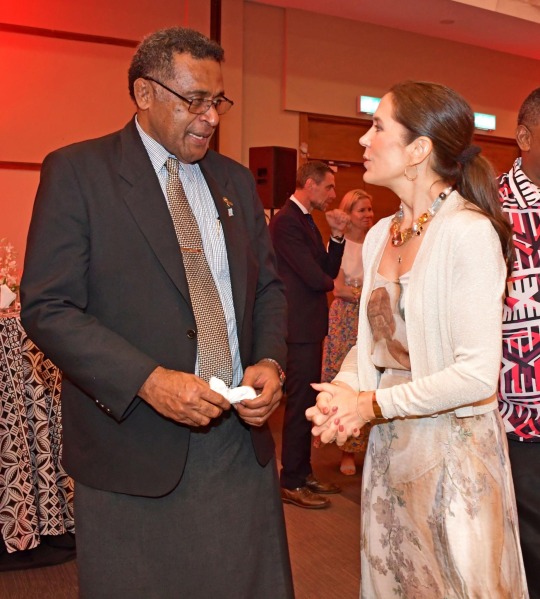#Fiji Prime Minister
Explore tagged Tumblr posts
Text
PCC Welcomes MSG Decision to Engage Further with Indonesia
MEDIA RELEASE: Pacific Churches welcomes Melanesian Spearhead Group move to engage further with Indonesia on the situation in West Papua. In noting the appointment by the MSG of Fiji Prime Minister Sitiveni Rabuka and Prime Minister James Marape of Papua New Guinea (PNG) as special envoys to meet with the President of Indonesia to discuss the pressing issue of West Papua, Pacific Conference of…

View On WordPress
#Fiji Prime Minister#Human Rights Violations#James Marape#PNG Prime Minister#regional support#Sitiveni Rabuka#un Human Rights Council
0 notes
Text
Fiji and PNG Prime Ministers to.Meet Indo's President on West Papua Issue
Earlier today, the Melanesian Spearhead Group Caucus appointed me as a Special Envoy to address the West Papua issue. Alongside Prime Minister James Marape of Papua New Guinea (PNG), we’ve been tasked with meeting the President of Indonesia to discuss this pressing matter. This significant decision emerged during today’s MSG Caucus meeting when I proposed sending a representative to Indonesia…

View On WordPress
0 notes
Text
In fact, far more Asian workers moved to the Americas in the 19th century to make sugar than to build the transcontinental railroad [...]. [T]housands of Chinese migrants were recruited to work [...] on Louisiana’s sugar plantations after the Civil War. [...] Recruited and reviled as "coolies," their presence in sugar production helped justify racial exclusion after the abolition of slavery.
In places where sugar cane is grown, such as Mauritius, Fiji, Hawaii, Guyana, Trinidad and Suriname, there is usually a sizable population of Asians who can trace their ancestry to India, China, Japan, Korea, the Philippines, Indonesia and elsewhere. They are descendants of sugar plantation workers, whose migration and labor embodied the limitations and contradictions of chattel slavery’s slow death in the 19th century. [...]
---
Mass consumption of sugar in industrializing Europe and North America rested on mass production of sugar by enslaved Africans in the colonies. The whip, the market, and the law institutionalized slavery across the Americas, including in the U.S. When the Haitian Revolution erupted in 1791 and Napoleon Bonaparte’s mission to reclaim Saint-Domingue, France’s most prized colony, failed, slaveholding regimes around the world grew alarmed. In response to a series of slave rebellions in its own sugar colonies, especially in Jamaica, the British Empire formally abolished slavery in the 1830s. British emancipation included a payment of £20 million to slave owners, an immense sum of money that British taxpayers made loan payments on until 2015.
Importing indentured labor from Asia emerged as a potential way to maintain the British Empire’s sugar plantation system.
In 1838 John Gladstone, father of future prime minister William E. Gladstone, arranged for the shipment of 396 South Asian workers, bound to five years of indentured labor, to his sugar estates in British Guiana. The experiment with “Gladstone coolies,” as those workers came to be known, inaugurated [...] “a new system of [...] [indentured servitude],” which would endure for nearly a century. [...]
---
Bonaparte [...] agreed to sell France's claims [...] to the U.S. [...] in 1803, in [...] the Louisiana Purchase. Plantation owners who escaped Saint-Domingue [Haiti] with their enslaved workers helped establish a booming sugar industry in southern Louisiana. On huge plantations surrounding New Orleans, home of the largest slave market in the antebellum South, sugar production took off in the first half of the 19th century. By 1853, Louisiana was producing nearly 25% of all exportable sugar in the world. [...] On the eve of the Civil War, Louisiana’s sugar industry was valued at US$200 million. More than half of that figure represented the valuation of the ownership of human beings – Black people who did the backbreaking labor [...]. By the war’s end, approximately $193 million of the sugar industry’s prewar value had vanished.
Desperate to regain power and authority after the war, Louisiana’s wealthiest planters studied and learned from their Caribbean counterparts. They, too, looked to Asian workers for their salvation, fantasizing that so-called “coolies” [...].
Thousands of Chinese workers landed in Louisiana between 1866 and 1870, recruited from the Caribbean, China and California. Bound to multiyear contracts, they symbolized Louisiana planters’ racial hope [...].
To great fanfare, Louisiana’s wealthiest planters spent thousands of dollars to recruit gangs of Chinese workers. When 140 Chinese laborers arrived on Millaudon plantation near New Orleans on July 4, 1870, at a cost of about $10,000 in recruitment fees, the New Orleans Times reported that they were “young, athletic, intelligent, sober and cleanly” and superior to “the vast majority of our African population.” [...] But [...] [w]hen they heard that other workers earned more, they demanded the same. When planters refused, they ran away. The Chinese recruits, the Planters’ Banner observed in 1871, were “fond of changing about, run away worse than [Black people], and … leave as soon as anybody offers them higher wages.”
When Congress debated excluding the Chinese from the United States in 1882, Rep. Horace F. Page of California argued that the United States could not allow the entry of “millions of cooly slaves and serfs.” That racial reasoning would justify a long series of anti-Asian laws and policies on immigration and naturalization for nearly a century.
---
All text above by: Moon-Ho Jung. "Making sugar, making 'coolies': Chinese laborers toiled alongside Black workers on 19th-century Louisiana plantations". The Conversation. 13 January 2022. [All bold emphasis and some paragraph breaks/contractions added by me.]
#abolition#tidalectics#caribbean#ecology#multispecies#imperial#colonial#plantation#landscape#indigenous#intimacies of four continents#geographic imaginaries#indigenous pedagogies#black methodologies
464 notes
·
View notes
Photo

On this day, 8 April 2013, former Conservative prime minister Margaret Thatcher died. Street parties broke out across the UK, particularly in working class areas and in former mining communities which were ravaged by her policies. Her legacy is best remembered for her destruction of the British workers' movement, after the defeat of the miners' strike of 1984-85. This enabled the drastic increase of economic inequality and unemployment in the 1980s. Her government also slashed social housing, helping to create the situation today where it is unavailable for most people, and private property prices are mostly unaffordable for the young. Thatcher also complained that children were "being cheated of a sound start in life" by being taught that "they have an inalienable right to be gay", so she introduced the vicious section 28 law prohibiting teaching of homosexuality as acceptable. Abroad, Thatcher was a powerful advocate for racism, advising the Australian foreign minister to beware of Asians, else his country would "end up like Fiji, where the Indian migrants have taken over". She hosted apartheid South Africa's head of state, while denouncing the African National Congress as a "typical terrorist organisation". Chilean dictator general Augusto Pinochet, responsible for the rape, murder and torture of tens of thousands of people, was a close personal friend. Back in Britain, she protected numerous politicians accused of paedophilia including Sir Peter Hayman, and MPs Peter Morrison and Cyril Smith. She also lobbied for her friend, serial child abuser Jimmy Savile, to be knighted despite being warned about his behaviour. Margaret Thatcher was eventually forced to step down after the defeat of her hated poll tax by a mass non-payment campaign. Pictured: Jimmy Savile welcoming Thatcher to hell, reportedly. Learn more about the great miners' strike of 1984-5 in our podcast series: https://workingclasshistory.com/tag/1984-5-miners-strike/ https://www.facebook.com/photo.php?fbid=605239344982618&set=a.602588028581083&type=3
1K notes
·
View notes
Photo




Crown Princess Mary’s Official Engagements in April 2023:
14/04: Global Leaders Group on Antimicrobial Resistance
16/04: Queen Margrethe’s 83rd Birthday
17/04: Opening of Exhibition “This is Denmark” in Milan Design Week
17/04: Roundtable Discussion “New European Bauhaus Project”
17/04: Creative Denmark Dinner
23/04: Visit to Vanuatu - Meeting with Minister of Climate Change Adaptation, Visit to Pele Island
24/04: Visit to Vanuatu - Meeting with President & Prime Minister of Vanuatu, Visit to Local Community Etas, Official Lunch
25/04: Visit to Fiji - Welcome Ceremony, Meeting with President of Fiji
25/04: Visit to Fiji - Nabavatu Village
25/04: Visit to Fiji - Reception & Dinner
26/04: Visit to Fiji - Ministry of Lands & Mineral Resources, Sailing Tour, Meeting with Prime Minister of Fiji, Disability Organisations, BOGA, University of the South Pacific
27/04: Visit to Fiji - Blackrock Peacekeeping Camp, Mangrove Planting
28/04: Visit to Sydney - Cycling Tour
28/04: Visit to Sydney - Green Transition Roundtable, Quay Quarter Tower
30/04: 75th Anniversary of the First Female Priest
40 notes
·
View notes
Text
Frank Bainimarama, who was Fiji’s prime minister for some 15 years until losing power in 2022, has been jailed for a year after he was found guilty of using his position to shut down a corruption investigation into a prominent university. Once armed forces chief, Bainimarama seized power in a 2006 coup and later won democratic elections in 2014 and 2018. The 70-year-old narrowly lost the December 2022 election to a coalition of parties led by the current prime minister, Sitiveni Rabuka, but remains a popular figure.
Continue Reading.
3 notes
·
View notes
Text







🇩🇰 Crown Princess Mary of Denmark
Tuesday, April 25, 2023
“Her Royal Highness, the Crown Princess of Denmark, Mary Elizabeth and the UNFPA Executive Director, Dr. Natalia Kanem were hosted to a welcome reception at the Grand Pacific Hotel in Suva this evening.
Crown Princess Mary took a daytrip to Nabavatu Village in Vanua Levu today where she had the opportunity to speak with villagers and saw firsthand the harmful impacts of climate change that some of Fiji’s rural communities are facing.
Addressing the reception this evening, Deputy Prime Minister, Hon. Manoa Kamikamica stated that the visit to the North by the Crown Princess was fitting because she was able to witness how climate change has forced people to relocate from their homes, and when relocation takes place, it is more than just a physical relocation because the extraction of a person from its central being and spiritual locality takes place.
DPM Kamikamica also highlighted that it is critical to be mindful of the impacts of climate change on women and the younger generation when relocation plans take place.”
25 notes
·
View notes
Text

28 October 2018 | Prince Harry, Duke of Sussex and Meghan, Duchess of Sussex meet New Zealand Prime Minister Jacinda Ardern, at Government House in Wellington, New Zealand. The Duke and Duchess of Sussex are on their official 16-day Autumn tour visiting cities in Australia, Fiji, Tonga and New Zealand. (c) Kirsty Wigglesworth - Pool /Getty Images
#Jacinda Ardern#Prince Harry#Duke of Sussex#Meghan#Duchess of Sussex#Britain#2018#Kirsty Wigglesworth#Pool#Getty Images
4 notes
·
View notes
Text
Part 8: Namibia, Fiji, Vanuatu, Tonga, Tuvalu
Some these are really short, I wasn't able to find a lot of information on them. I am, admittedly, only doing a surface search to save time, but still.
(Also I'm limiting how much time I spend writing them)
I did add Namibia to this one, and Zimbabwe links will be at the bottom.
-Soul
Namibia
While Namibia does criminalize homosexuality by men, it does have a pride celebration.
Namibia’s pride celebration began in December 2013, and was run by Out-Right Namibia in Windhoek. Approximately 100 people showed up, a mix of black and white citizens. This was a historical moment, not just because it was pride, but because as Linda Baumann explained, “there is a gap between the two communities in the country and it was historic; a mixture of our communities getting together”. Marchers in the celebration carried signs saying things like “Up with love, down with hate” and “Dare to be different”. The organization was given permission to hold this event by the Windhoek government, and was provided with four police officers to protect them. There were protestors at pride, but the majority accepted it.
This event was a large step forward for Namibia queers, but there is still plenty they are working towards. In 2018, a gay couple, one of which was from Namibia, the other from South Africa, won a case to immigrate their son to Namibia, but earlier this year(2023), it was repealed by the supreme court. Namibia continues to fight back, but the government resists.
Sources: 1 2 3 4
Fiji
Over all, LGBT rights in Fiji are decent. In February of 2010, homosexuality became legal, and in 2018, they had their first pride. However, gay marriage is still illegal, and anti-discrimination laws are lacking.
Talking about pride in Fiji, it was approved by the local government, and was escorted by police. Presumably to protect it. More importantly though, it was the first pride march in any Pacific Island. That isn’t to say it came easy though, in 2012 a pride celebration was planned in one of the bigger cities in Fiji. It was, unfortunately, canceled by the police. It was attempted again afterwards, but they had no success until doing it in a small town in 2018. The pride was organized by the Rainbow Pride Foundation.
In 2016, former Prime Minister Frank Bainimarama said that all LGBTI people in Fiji should move to Iceland. Also in 2016, the military was very loud with its homophobia, and according to one advocate who married his husband in a different country, if his relationship had been found out they would have been taken to the barracks.
There is a long going fight in Fiji concerning the safety of LGBT+ people. There are high rates of violence against them, and they feel unsafe going to the police. Rabuka, the current Prime Minister, has made no statements.
Sources: 1 2 3 4
Vanuatu
Homosexuality is legal in Vanuatu, and they have a form of pride that is not the traditional march. Vanuatu pride is run by V-Pride, an LGBT+ organization. Every year since 2020, V-Pride has run a fashion show. In 2021, six designers showed more than 80 outfits to over 500 guests. In a historic moment, Honorable Ralph Regenvanu spoke at this event. He talked about how important it is to talk about V-Pride and its contributions to fashion and society, and about the importance of Vanuatu reaching its obligations, both nationally and internationally, to leave no one behind.
V-Pride offers testing for STI’s and information.
Sources: 1 2 3
Tonga
In May of 2021, the president of Tonga Leitis Association was murdered. They were described as “a selfless humanitarian and a tireless advocate for the rights of those with diverse sexual orientations, gender identities and gender expressions.” by the association. Polikalepo Kefu was a well respected individual in the community, and spoke for people all through the Pacific Islands. The association was created 1992 and specifically advocates for trans and otherwise gender variant people in Tonga. They provide healthcare, and services to people with AIDS/HIV.
In 2018, a rugby player named Israel Folau spoke against homosexuality. In response, Honorable Frederica Tuita Felipe sent out several tweets.
Sources: 1 2 3 4 5 6
Tuvalu
While Tuvalu was a signatory in 2011 to end violent homophobia and transphobia, and representatives sat in on a campaign by the UN to end Homophobia and Transphobia, it’s still illegal. Kind of. Tuvalu laws specifically only prohibit men from having sex with each other. Tuvalu does have a transfeminine identity called Pinapinaaine, and Canada sent a report to Tuvalu about how their laws can be fixed to accommodate queer people in 2014.
Sources: 1 2 3 4
Zimbabwe
Links: 1 2 3 4 5 6 Please note these are links to articles I was going to use as a starting point for research.
Part 1
Part 7<-Announcement->Part 9
Please support this project by checking out the LGBT+ Identities and Experiences survey in our link tree! Also, a full description of this project is being posted in our discord!
Pride Month Calendar for this project
Tell me in replies if you want to be tagged!
#project unknowing#lgbt#lgbtq#lgbtqia#lgbtqia+#queer#current politics#discrimination#pride month#Namibia#zimbabwe#Fiji#vanuatu#tonga#tuvalu#lgbt politics around the world
6 notes
·
View notes
Text
Virgin Australia crew members allegedly sexually assaulted and robbed in Fiji
Fijian police are investigating allegations of theft and sexual assault against two Virgin Australia crew members in the early hours of New Year's Day, the government said on Thursday. The alleged attacks took place on Wednesday in the night club area of the city of Nadi, where the international airport is located, Deputy Prime Minister Viliame Gavoka said. “The alleged incidents are…
0 notes
Text
Virgin Australia crew members allegedly sexually assaulted and robbed in Fiji
Fijian police are investigating allegations of theft and sexual assault against two Virgin Australia crew members in the early hours of New Year's Day, the government said on Thursday. The alleged attacks took place on Wednesday in the night club area of the city of Nadi, where the international airport is located, Deputy Prime Minister Viliame Gavoka said. “The alleged incidents are…
0 notes
Text
Virgin Australia crew members allegedly sexually assaulted and robbed in Fiji
Fijian police are investigating allegations of theft and sexual assault against two Virgin Australia crew members in the early hours of New Year's Day, the government said on Thursday. The alleged attacks took place on Wednesday in the night club area of the city of Nadi, where the international airport is located, Deputy Prime Minister Viliame Gavoka said. “The alleged incidents are…
0 notes
Text
Virgin Australia crewmembers allegedly sexually assaulted and robbed in Fiji
Police in Fiji are investigating allegations that two Virgin Australia crew members were robbed and sexually assaulted in the early hours of New Year’s Day, the government said on Thursday. The alleged attacks took place on Wednesday in the nightclub area of the city of Nadi, home to the international airport, Deputy Prime Minister Viliame Gavoka said. “The alleged incidents are unfortunate,”…
0 notes
Text
KE AUPUNI UPDATE - DECEMBER 2024

An Ocean of Peace – An Ocean of Aloha
In November 2023, at the Pacific Islands Forum (PIF) Leaders Retreat in Aitutaki, Rarotonga, the Prime Minister of Fiji, Sitiveni Rabuka proposed the PIF nations declare a ‘Zone of Peace’ or ‘Ocean of Peace,’ representing a collective commitment to maintaining peace in the region. In his visionary statement, Prime Minister Rabuka emphasized, “This moment is an opportunity for us islanders of the Pacific to shape a common destiny built around peace.” This concept was well received by the PIF Leaders and the PIF Secretariat has been tasked to further develop the concept and to align it with the PIF’s 2050 Strategy and its implementation plan for consideration at the next Pacific Islands Forum leaders meeting in the Solomon Islands The PIF envisions the Ocean of Peace concept to achieve a more peaceful and stable future for the Pacific region and to set a positive example of a way to peacefully settle disputes around the world. The strategic importance of the Blue Pacific region is significant. The nations, united through the Pacific Islands Forum, have sovereign rights to over 32 million square kilometers of the Blue Pacific. That is about the combined land areas of Russia, China, and the United States. The collective Exclusive Economic Zones surrounding the islands exceed the combined landmass of North America and Europe, reaffirming the geopolitical significance of the Blue Pacific in the competition between the U.S. and China. Ironically, the Pacific Islands Forum does not include the Archipelago of the Hawaiian Islands, even though the Hawaiian Islands has historically played a pivotal role in Pacific and global affairs. And yet, Hawaii has a key role to play in this Ocean of Peace. Is the Pacific finally living up to it’s name? Our ancestors called our ocean domain Moananuiakea. Our Maori cousins to the south called it Moananuiakiwa… In 1520 the Spanish explorer Ferdinand Magellan upon entering Moananuiakea – called it the Pacific Ocean – the Ocean of Peace. What is peace? Is it the absence of dispute? Is it the absence of turmoil? Is it the absence of conflict? Is it the absence of war? No. True peace is the presence of Aloha. It is Aloha embodied in our relationships and our dealings with one another. I am reminded of the words uttered in 1962 by our kupuna, Aunty Pilahi Paki. She famously said: “The World will turn to Hawaii as they search for world peace because Hawaii has the key… and that key is aloha.” And then she spelled it out for us… Akahai: kindness; express it with tenderness. Lokahi: unity; express it with harmony. Oluolu: agreeable; express it with pleasantness. Haʻahaʻa: humility; express it with modesty. Ahonui: patience; apply it with perseverance. An ‘Ocean of Peace’ means an ‘Ocean of Aloha’ “Love of country is deep-seated in the breast of every Hawaiian, whatever his station.” — Queen Liliʻuokalani ---------- Ua mau ke ea o ka ʻāina i ka pono. The sovereignty of the land is perpetuated in righteousness. ------ For the latest news and developments about our progress at the United Nations in both New York and Geneva, tune in to Free Hawaii News at 7 PM the first Friday of each month on ʻŌlelo Television, Channel 53. ------ "And remember, for the latest updates and information about the Hawaiian Kingdom check out the twice-a-month Ke Aupuni Updates published online on Facebook and other social media." PLEASE KŌKUA… Your kōkua, large or small, is vital to this effort... To contribute, go to: • GoFundMe – CAMPAIGN TO FREE HAWAII • PayPal – use account email: [email protected] • Other – To contribute in other ways (airline miles, travel vouchers, volunteer services, etc...) email us at: [email protected] All proceeds are used to help the cause. MAHALO! Malama Pono, Leon Siu Hawaiian National
0 notes
Text
MSMEs key to Fiji's economy: Kamikamica
The micro, small, and medium enterprises represent 82 percent of registered businesses, underscoring their vital role in our economy. This has been highlighted by Deputy Prime Minister and Minister for Trade and Co-operatives Manoa Kamikamica as he unveiled the “Landscape Assessment of Accelerators and Incubators in Fiji”. This was conducted by the Reserve Bank of Fiji and the Australian…

View On WordPress
0 notes
Text




🇩🇰 Crown Princess Mary of Denmark
Wednesday, April 26, 2023
“Prime Minister and Minister for Foreign Affairs, Honourable Sitiveni Rabuka received a courtesy call from Her Royal Highness (HRH) Crown Princess Mary Elizabeth of Denmark, today at the Ministry of Foreign Affairs headquarters in Suva. The Crown Princess was accompanied by the UN Under-Secretary-General and the United Nations Population Fund (UNFPA) Executive Director, Dr. Natalia Kanem and Denmark’s Minister for Development Cooperation and Global Climate Policy Mr. Dan Jørgensen.
Prime Minister Rabuka welcomed and thanked Her Royal Highness for her first visit to our shores which demonstrates Denmark’s unwavering support for Fiji and the Pacific region. He said this timely visit will advance our friendly relations and cooperation with Denmark on issues of importance such as climate actions, sustainable development and inclusivity. At the same time, the Prime Minister acknowledged Crown Princess Mary for her commitment in advocating for health, gender equality and the empowerment of women and girls.
During the meeting, Crown Princess Mary thanked Prime Minister Rabuka and the people of Fiji for the kind hospitality accorded to her. She commended the Fiji Government’s commitment towards inclusivity and sustainable development. She also reaffirmed Denmark’s support to enhance the close and friendly relations between the two nations.



**Fiji looks forward to the new development initiatives to be pursued through the Crown Princess Mary’s historic visit to Fiji. During the final day of her visit tomorrow, the Crown Princess will visit the Blackrock Camp in Nadi before departing to Australia.”
2 notes
·
View notes